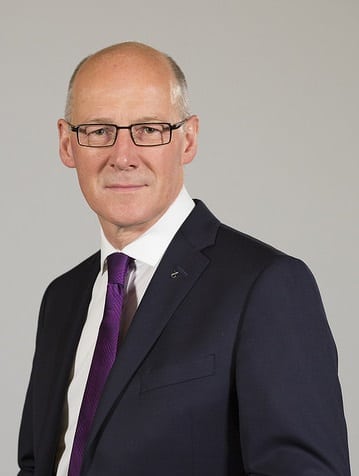On the back of thinking about all the small things that lead to successes in a school, I thought it would be apt to consider the other side of this. One of the seemingly small things that add to a considerable amount of disruption and wasted learning time, in all of the schools I have ever worked in, is the line. I’m going to discuss the various problems I see with this accepted norm, and then I will try to consider some alternatives.
One of the main issues I have with this is the wasted teaching and learning time that could be better spent doing anything else. The time it takes between a bell ringing and children getting into a classroom is huge. Let’s do some quick maths on this. A conservative estimate (based purely on my own experience, with admittedly no scientific rigour applied), would be that it takes at least 5 minutes once the bell has gone to have a class ready to come in at the start of the day, after break and after lunch (at least!). So this is potentially 15 minutes each day, which is about 70 minutes across the week, taking in to account the half-day! That is over 44 hours across the school year.
I don’t want you to think I am ever condoning counting minutes and seconds and making sure every possible part of time is accounted for. This would be dangerous for a large number of reasons. But when there are so many other issues, it begs the question, why are we wasting our time on a bizarre and old fashioned custom that gives nothing back?
Ordinarily, children have been playing in an unstructured and child-led way, then a bell goes (quite abruptly) and they have to stop immediately and form a line, one behind each other. We often scorn them for not being straight enough or for continuing conversations. Quite militaristic when you think about it? But this is quite difficult for a lot of children to do (I think I would struggle to be honest) especially if they have been engaging in high energy play. What are we achieving by standing in line? Efficient management of people cannot be an argument here due to the amount of wasted time. Compliance?
I don’t like the idea of continuing to do something one way just because it is the way we have always done it. I want to know what the alternatives are.
Comment below with any suggestions on alternatives to lining up.


